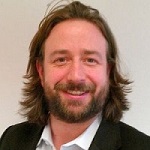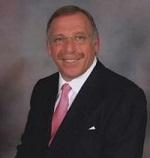

Real News: Disrupting the Marketing Organisation
March 23, 2017 @ 6:45 pm - 9:00 pm
Overview
Start date : 23 March 2017
Start time : 06:45 pm
End time : 09:00 pm
Location : ESCP Business School London Campus
The operating system of the global economy is being reworked, and businesses across different industries must adapt to a new and dynamic reality. Digital disruption is here to stay and that means business change is too, to leverage the new opportunities.
Disrupting the Marketing Organisation
- As brands transform themselves for the digital marketplace, how can they be sure that their marketing efforts are keeping pace?
- How should marketing organisations adapt themselves to match the rapid evolution in consumer expectations?
- What does it mean to manage the transition from one-off interactions with individual customers to continuous engagement with a virtual community of supporters and subscribers?
ESCP Business School and its Creativity Marketing Centre hosted an exclusive panel discussion on this fascinating topic with Lee Wilkinson, Change & Delivery Director at Condé Nast International and David Glasser, Executive Chair of Ben Uri. The event took place at the ESCP Business School’s London Campus on 23 March at 6.45pm.
Our two marketing experts have between them a prodigious level of experience working with some of the world’s leading retail and publishing businesses.
They are transforming the marketing of two very different brands – one a locally-based NGO but of universal relevance, the other most definitely global and a premier benchmark in the fashion world.
Both organisations have radically evolved their product offer and their understanding of their target audience over recent years, and now have real news to deliver to the outside world.
During this event, our panel shared their experiences and learning on the journey so far, followed by a discussion of what the future may hold for brands with something to say and an open attitude to how they say it. They considered the role of their product in creating and supporting social communities, and the ways in which consumers can be prompted and surprised into discovering and engaging with a brand.
This was a must-see session not only for students, business executives and practitioners of marketing and marketing communications, but also essential viewing for anyone interested in the way that brands and brand communities are changing the way we look at the world and listen to those around us.
The discussion was followed by a drinks reception, allowing attendees the opportunity to meet the speakers, our Executive Master in Marketing and Creativity participants, a distinguished cohort of marketing executives with experience across a wide range of industries and regions. and network with other like-minded people.
Our Speakers
Lee Wilkinson

Lee Wilkinson is Change & Delivery Director at Condé Nast International, where he leads product development and the business transformation and growth divisions. Lee has extensive experience in the digital media online environment working on some of the world’s market leading products. Previously, he had been at Hearst since 2012 in the role of VP Strategy & Product Management and before that with News International (NI) where he was Director of Product Strategy. At NI he worked on the launch of a number of award-winning Web, Tablet and Smartphone products including the Times and Sunday Times iPad editions, Times Mobile and The Times.co.uk. Prior to that, he was Head of B2B Product Development at FT.com where he was involved in the development of FT.com subscription, FT Mobile, FT Search and FT.com’s B2B products.
David Glasser

David Glasser is Executive Chair of Ben Uri, born in Glasgow, he built his corporate career at Marks and Spencer Plc where he pioneered the Food Only Store concept and then at Ward White Group Plc, where he was responsible for development and marketing functions, up to the acquisition of the company by Boots Plc. He formed Northgate Consultancy, which advised on strategic development and was involved in a number of businesses from 1990 -2000. He became involved in Ben Uri in the late 90s and agreed to lead the development of a new strategic plan to re-invigorate and re-establish the museum. In October 2000 he was elected Executive Chair and has operated since in this role full time on a pro-bono basis. To avoid any personal or corporate conflicts of interest he withdrew from business in 2001 and of collecting to focus on creating a new style of visitor engaging museum addressing contemporary issues and social integration through the visual and creative arts.
